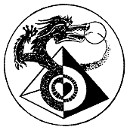
The World of Tibetan Pulsing
& Tibetan Pulsing Resources Worldwide
What is Tibetan Pulsing Yoga? (Continued)
Theatre
William Shakespeare once famously expressed the following through a character in his play 'As You Like It':
All the world's a stage,
And all the men and women merely players;
They have their exits and their entrances,
And one man in his time plays many parts,
His acts being seven ages.In Tibetan Pulsing Yoga the "many parts" that we each play in our time have been carefully mapped out and studied, and live theatre scenes are prepared and performed by participants at Tibetan Pulsing courses (especially the Intensive II) as a means of exploring different specific roles that we each take on life's "stage."
These roles are in reality stories that we play out, as if on a stage, and often we repeat the same stories many times in our lives according to the specific psychological habits and patterns we have each developed in response to the events we have experienced. By individually identifying what these stories are and acting them out in real theatre scenes at Tibetan Pulsing courses, we at last have an opportunity for insight - a chance to recognise the patterns for what they are and step out of each story so we can simply watch it - as in the theatre - and in this way become less identified with the story and its suffering (which is part of the essence and purpose of the practice of meditation in general).
Interestingly, Shakespeare's comment above was also very precise and accurate when he stated that there are seven acts in life. These seven very specific phases of development are explored and gradually worked with in Tibetan Pulsing Yoga courses, one at a time and in specific sequence, by clearing the accumulated negative bio-electrical charges from our nervous system layer by layer.
William Shakespeare - great master of the theatre that he was, with an immense and broad understanding of human nature and ability to express it poetically and dramatically - also famously expressed the following poetic passage of despair through his character Macbeth caught at a particularly dark moment:
Life's but a walking shadow, a poor player
That struts and frets his hour upon the stage
And then is heard no more: it is a tale
Told by an idiot, full of sound and fury,
Signifying nothing.Shakespeare indicates the most essential problem of life: this poor player's wasted hour upon the stage is a tale "signifying nothing," and yet we can see from all its "sound and fury" that the poor player is over-identified with it, as though it is full of significance!
Through the use of theatre and many other related techniques in Tibetan Pulsing Yoga, we can learn to step outside of all the "sound and fury" of our time-wasting life-dramas, and in this way become no longer a "walking shadow" of ourselves, but instead rediscover our true nature and the real significance of each aspect of human experience.
Previous page What is Tibetan Pulsing Yoga? Next page
1 2 3 4 5 6 7 8 9 10 11 12 13 14 15
Sister Sites Maintained as Educational Resources by the Same Authors:
Link to: FCT World - First Prepare Your System for Yoga & Meditation Using the Unique & Powerful System of Medicine called Field Control Therapy Link to: Key Toxins - Exclusive Articles, Info & Interviews about Toxicity, the World's Most Pressing Issue
Link to: See What Is There - Wide-Ranging Humanitarian Web Resource, of Which Tibetan Pulsing World is Part Link to: Deep Energy Healing - Resources on Different Therapies, the Nature of Healing and the Future of Medicine
© Copyright 2007 Simon Rees and Tibetan Pulsing World. Disclaimer: The information at this website is not intended to be a substitute for professional medical advice, diagnosis or treatment. Always seek the advice of your doctor with any questions you may have regarding a medical condition. The content of this website comprises only the observations and opinions of the authors and contributors: it does not constitute medical advice to readers.
